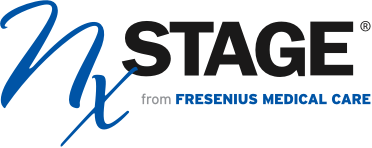Find A Center
Find a Center That Offers Home Dialysis Near You
Get one step closer to a healthier, better, and longer life.
Not all dialysis centers are the same. Speak with one of our Patient Consultants for support with getting a referral to a local center that fits your needs.Talk to a Patient Consultant
Featured Centers are centers that frequently train patients on NxStage home hemodialysis therapy.
You are prohibited from using, downloading, republishing, selling, duplicating, or “scraping” for commercial or any other purpose whatsoever, the Find a Center directory or any of the data listings or other information contained therein, in whole or in part, in any medium whatsoever.
Inclusion in the Find a Center directory does not imply recommendation or endorsement by NxStage nor does omission in the Find a Center directory imply NxStage disapproval.
NxStage makes no representation or warranty as to the accuracy or completeness of the Find a Center directory or the availability of or quality of services provided by any center listed in such directory. You assume full responsibility for the communications with any center or physician you contact through the Find a Center directory. NxStage shall in no event be liable to you or to anyone for any decision made or action taken by you in the reliance on information provided in the Find a Center directory.
By using NxStage's Find a Center directory, you agree to the terms and conditions on this page as well as our website Terms of Use.
Risks and Responsibilities
The reported benefits of peritoneal dialysis may not be experienced by all patients.
Peritoneal dialysis does involve some risks that may be related to the patient, center, or equipment. These include, but are not limited to, infectious complications. Examples of infectious complications include peritonitis and exit-site and tunnel infections. Non-infectious complications include catheter complication such as migration and obstruction, peritoneal leaks, constipation, hemoperitoneum, hydrothorax, increased intraperitoneal volume, and respiratory and gastric issues. It is important for healthcare providers to monitor patient prescriptions and achievement of adequate fluid management goals.
Patients should consult their doctor to understand the risks and responsibilities of performing peritoneal dialysis.
The reported benefits of home hemodialysis (HHD) may not be experienced by all patients. The NxStage System is a prescription device and, like all medical devices, involves some risks. The risks associated with hemodialysis treatments in any environment include, but are not limited to, high blood pressure, fluid overload, low blood pressure, heart-related issues, and vascular access complications. When vascular access is exposed to more frequent use, infection of the site, and other access related complications may also be potential risks. The medical devices used in hemodialysis therapies may add additional risks including air entering the bloodstream, and blood loss due to clotting or accidental disconnection of the blood tubing set.
Home hemodialysis with the NxStage System during waking hours may not require a care partner, provided a physician and a qualified patient agree that solo home hemodialysis is appropriate. Patients performing nocturnal treatments are required to have a care partner. Care partners are trained on proper operation and how to get medical or technical help if needed.
Certain risks associated with hemodialysis treatment are increased when performing solo HHD because no one is present to help the patient respond to health emergencies. If patients experience needles coming out, blood loss, or very low blood pressure during solo HHD, they may lose consciousness or become physically unable to correct the health emergency. Losing consciousness or otherwise becoming impaired during any health emergency while alone could result in significant injury or death. Additional ancillary devices and training are required when performing solo HHD.
Certain risks associated with hemodialysis treatment are increased when performing nocturnal therapy due to the length of treatment time and because therapy is performed while the patient and care partner are sleeping. These risks include, but are not limited to, blood access disconnects and blood loss during sleep, blood clotting due to slower blood flow and/or increased treatment time, and delayed response to alarms when waking from sleep.
Patients should consult their doctor to understand the risks and responsibilities of performing these therapies using the NxStage System.





